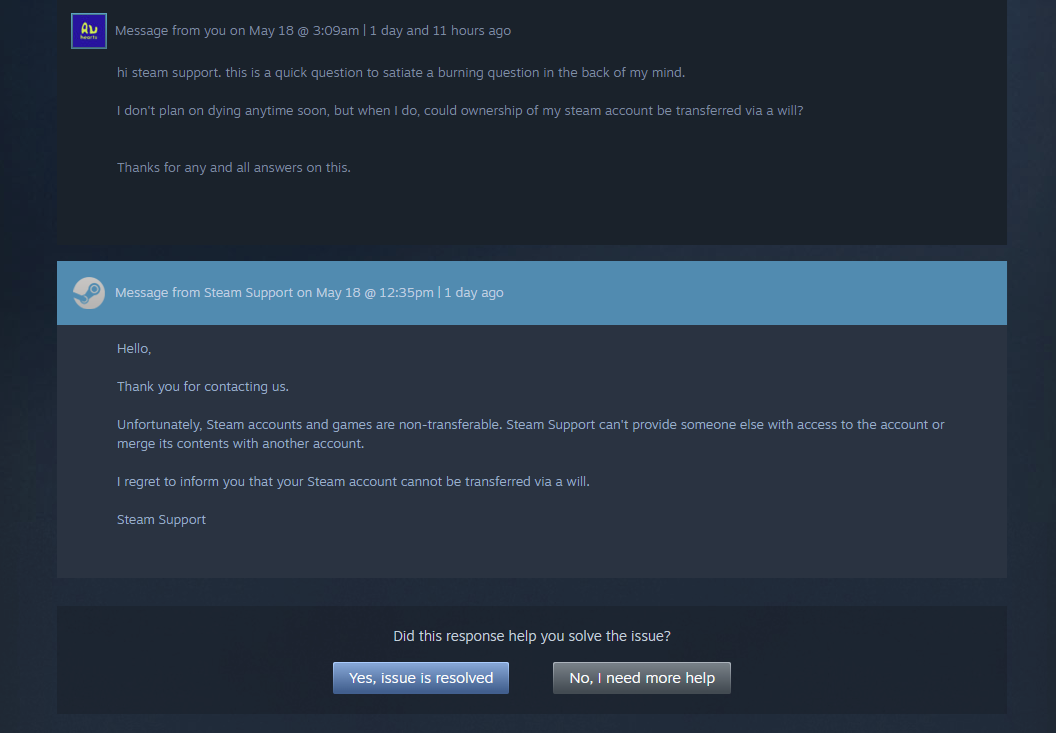Can your Steam library be part of your will when you die? The question was asked to Valve and makes us think about the notion of ownership of digital goods purchased online.
Although it may be unpleasant to talk about it, one day you will have to think about what you will leave to your loved ones after your death. The question arises about your intangible assets, but what about your intangible possessions like… your Steam library?
You’ve probably spent hundreds or even thousands of dollars purchasing games on the Valve platform over the years and you might want someone else to benefit from them through your future will. Can your backlog legally be transferred to the person of your choice?
On Steam, the notion of inheritance does not exist
The question was posed to Steam customer service this week by a user who wanted to know if, upon his death, his Steam account could be transferred through a will. The service’s response was very clear: Steam accounts and games are “non-transferable”, the platform cannot give access to an account to another user in the event of the death of its owner.

In this scenario, account sharing is not authorized by Steam, but is practically possible. But in this case, will the service automatically close the account after 100 or even 120 years of existence? Nothing is clearly stipulated in the terms of use, but it is still too early to check, 21 years after the launch of Steam.
You don’t own your Steam games
Steam’s response, however, is not surprising when we know that the games you buy on the platform are not really yours, like any other digital good downloaded from PlayStation or Xbox.
As recalled Polygon, which cites the Steam User Agreement, games purchased on Steam are actually “licensed” and not sold. Players have “no rights or ownership” over their library, games can only be launched via the platform, unlike another service like GOG for example.
It therefore seems logical, in this context, that bequeathing your Steam account is not possible, but what would happen if the platform were to disappear? While the physical medium is threatened with disappearance, all these questions are indeed legitimate.
